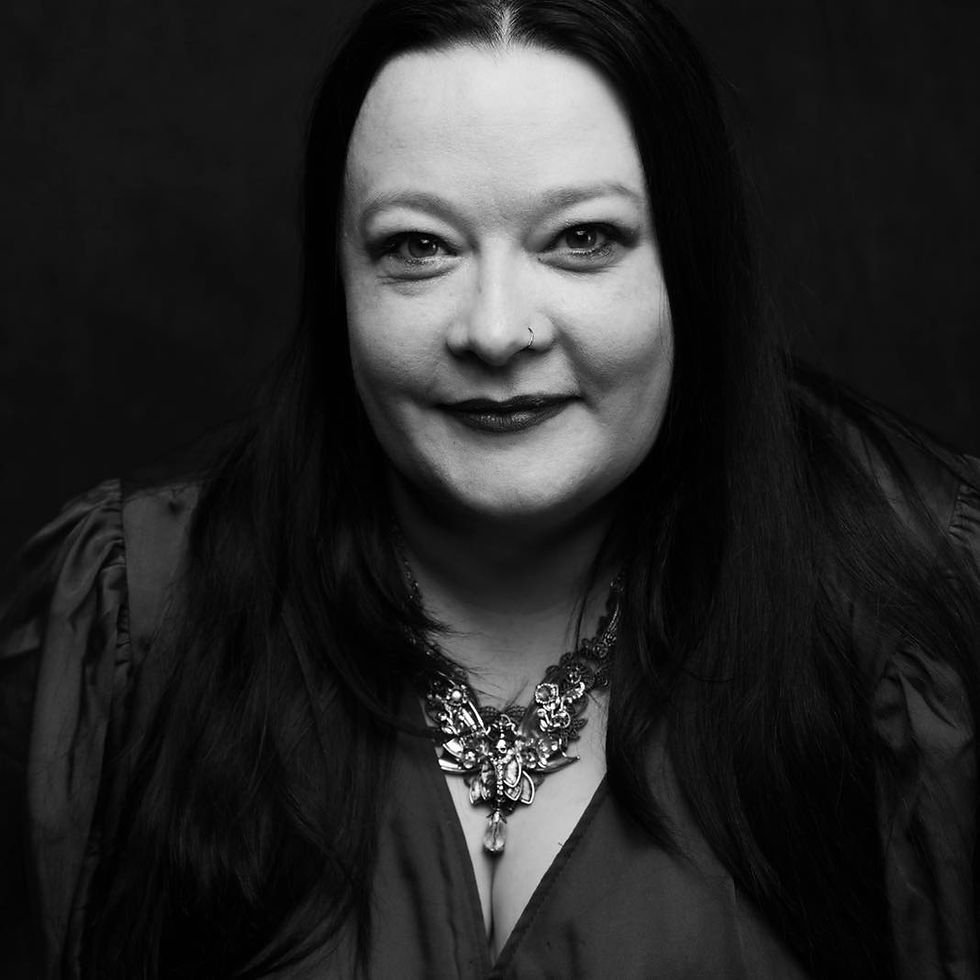A Book I Read: The Queen of the High Fields by Rhiannon A. Grist
- churchman72
- Aug 1, 2024
- 3 min read

Two misfits, Carys Price and Angharad ‘Hazard’ Evans, strike out from their disenfranchised seaside town to take ownership of the High Fields, a mythical island brimming with world-bending promise.
Objecting to the demands of modern society, they hope to find a place where they can live as they choose, but instead they find an ancient power that tears their friendship apart.
Ten years later, Carys returns to the collapsing world of the High Fields to face the terrifying power of the friend-turned-goddess she left behind.
Disclaimer: It should, of course, go without saying, but this is my personal opinion and nothing more. Yours may be different, and that's cool.
Daniel’s thoughts: Oh wow. Oh WOW.
The landscape, the language, the history and the mythology of Wales have always been fertile ground for authors of the fantastic – Alan Garner’s The Owl Service, Simon Maginn’s Sheep, Arthur Machen’s The Hill of Dreams and Susan Cooper’s The Dark is Rising all spring to mind. The Queen of the High Fields is rooted in that tradition, but is also solidly, full-bloodedly and gloriously a story of now.
Anyone who’s ever felt out of place in the modern world with all its demands will feel at once for Carys Price and Angharad Evans (aka Hazard.) Present-day Britain seems designed more than ever to be inimical to anyone with aspirations beyond wage-slavery, climbing the corporate ladder and consumerism. Who wouldn’t want to find a different place if they could? Who wouldn’t want to find a world shaped around their needs?
Such is the premise of Grist’s novella. Schoolfriends and fellow misfits, Carys and Hazard are fascinated by the legend of the High Fields, the mythical land in – or under – the sea off their Welsh coastal town of Severn’s End. (The theme of a lost or sunken land or city recurs over and over in Welsh legend: Cantre’r Gwaelod in the Cardigan Bay, Llys Helig off the Great Orme, even a drowned city in the depths of Llŷn Tegid at Bala.) They resolve to find it and live there, escaping the oppressive drudgery of the modern world. But to do so isn’t easy, and there’s a price to be paid. There always is.
They succeed, though, and then things goes wrong. Something terrible happens. And afterwards, Carys leaves, but Hazard remains, becoming the Queen of the High Fields, presiding over a flock of other refugees from modernity.
Now, ten years later, Carys is going back. Charmed by the handsome, beguiling Corin, she agrees to take him and his friend Peter out to the High Fields by boat. But both Hazard and her kingdom have changed, and both men have their own hidden agendas, setting in motion a devastating chain of events.
This book is, as my American friends would say, very much my jam. It’s a story of an often fraught but profound friendship where the balance of power shifts back and forth to the discomfort of both friends. It’s a story about getting what you want and the unforeseen consequences of that. It’s a story about finding ways to cope with a world that seems hostile to all you are and aspire to be. Its chapters alternate between Carys’ present-day journey and the story of her and Hazard’s quest for the High Fields, and as the story progresses this makes it an utterly compulsive read. It’s beautiful and magical and deeply satisfying.
The Queen of the High Fields won the 2023 British Fantasy Award for Best Novella. One of the loveliest sights at any awards ceremony, for me, is that of a winner who’s genuinely astonished to have won, which Grist quite definitely was. Her last words before leaving the stage, addressed to the presenter, were “Are you sure?” Yes, they were. And so am I. I am absolutely sure that you, whoever you are, should read The Queen of the High Fields, and also that you should keep your eye out for anything else with Rhiannon A. Grist’s name on it, because it will almost certainly be worth your time.
You can buy The Queen of the High Fields here.



Comments